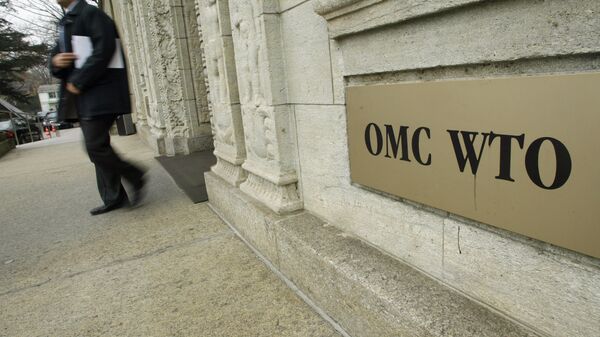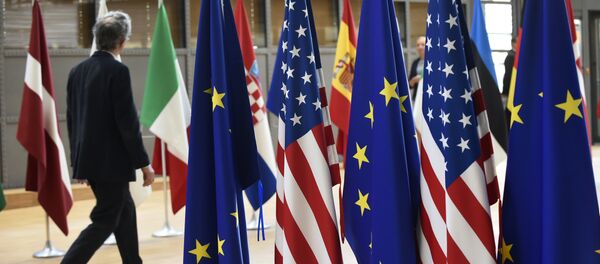Washington's long-standing criticism of the WTO has resumed, this time from a Midwestern lawmaker who sees the coronavirus pandemic as an appropriate time to do something with the watchdog’s role and the US part in the global economy.
Writing in The New York Times op-ed page, Senator Josh Hawley has called for the abolition of the WTO, the oversight of which has caused American workers’ woes, he believes. He stressed in black and white that the US needs to draw a line under Chinese “imperialism” and renegotiate trade deals with allies, arguing that abandoning the WTO would be a starting point.
Hawley further proceeded by introducing a resolution in the Senate to pull the US out of the WTO.
Although the complaints from the junior Republican senator from Missouri are in tune with many of those the Trump administration has voiced since 2017, many have at the same time argued that the WTO’s role is - but shouldn’t be - underestimated, alleging that the economic body is merely viewed as a universal scapegoat during this tumultuous time.
For instance, Simon Lester, an associate director at the Washington-based Cato Institute, strikes back in a blog post that “the WTO, with its agreement on Trade‐Related Aspects of Intellectual Property Rights, does a lot". “If the US pulls out of the WTO, it loses one of the key mechanisms to press China to improve its protection of these rights", he asserts.
The WHO's policies have also given the US an advantage over European companies, it has been suggested.
Similarly, US Trade Representative Robert Lighthizer’s office issued a reminder on Wednesday of how the WTO can continue to work for the country’s benefit with regard to Europe. Referring to the eternal dispute between Boeing Co. and Airbus SE, pitting, in economic terms, the US against the European Union, Robert Lighthizer said the US has fully complied with WTO recommendations, leaving “no valid basis for the EU to retaliate against any US goods".
While Senator Hawley’s op-ed also argues that because of the WTO “foreign agriculture won concession after concession, while American farmers struggled to get fair access to markets", it seems to fail to be corroborated by real statistical data.
The US farming industry is estimated to have been a major beneficiary of the WTO’s 24% to 36% average reduction in global agricultural tariffs. US exports in the sector have more than tripled since the WTO was established upon Washington's initiative a quarter century ago, growing from $44 billion in 1994 to $143 billion in 2018, according to data from the US Department of Agriculture.
It has been suggested by academics that dissolving the WTO and nullifying existing trade agreements could potentially deprive it of 30% of the total gains from trade, which would amount to a $2.7 trillion loss in GDP.
Abandoning the WTO would bring nothing but misfortunate to the US economy, says Myron Brilliant, the executive vice president and head of international affairs at the US Chamber of Commerce, noting that with 95% of the world’s consumers outside the country's borders, “keeping our trade lanes open will be critical to recovery".
The talk of such measures seem to be interestingly timed, given the raging corona epidemic and an upcoming vote in Congress on WTO approval that is held every five years and can in theory lead to the US withdrawal from the WTO.
For the time being, a fresh WTO report suggests that world trade could decrease by as much as 32 percent this year as the sweeping pandemic has already taken its toll on the global economy.



